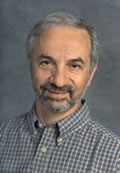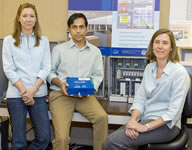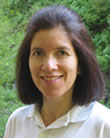


On Monday, the White House announced that the U.S. Department of Energy will invest $777 million in 46 new Energy Frontier Research Centers (EFRCs) over the next five years as part of President Obama's plans to reinvigorate American science. Berkeley Lab will be home to the Center for Nanoscale Control of Geologic CO2, a $20-million research effort led by Don DePaolo, Director of the Earth Sciences Division, with an immediate focus on geologic storage of carbon dioxide to prevent its release into the atmosphere. Secretary of Energy Steven Chu outlined the purpose of the EFRCs in a separate announcement: "These Centers will mobilize the enormous talents and skills of our nation's scientific workforce in pursuit of the breakthroughs that are essential to make alternative and renewable energy truly viable as large-scale replacements for fossil fuels." More>
 White House Update: President Obama Makes Commitment to Clean Energy Education and Research
White House Update: President Obama Makes Commitment to Clean Energy Education and Research During a speech Monday at the National Academy of Sciences, President Obama announced a National Science Foundation/Department of Energy collaboration that will provide the opportunity for thousands of American students to pursue careers in science, engineering, and entrepreneurship related to clean energy. He also announced the addition of $42.6 billion over the next seven years to the budgets of three agencies—DOE Office of Science, the National Science Foundation and the National Institutes of Standards and Technology. Comments on the plan can be made at the new blog of the Office of Science & Technology Policy. More>
 A new data model developed by researchers at Berkeley Lab and their colleagues at other universities and in the private sector will help facilities and buildings save power through automated demand response technology, and advance the development of the Smart Grid. The researchers who developed the Open ADR specification (Open Automated Demand Response) are part of the Demand Response Research Center (DRRC), a center funded by the California Energy Commission's Public Interest Energy Research Program (from left: Sila Kiliccote, Girish Ghatikar, and Mary Ann Piette). More>
A new data model developed by researchers at Berkeley Lab and their colleagues at other universities and in the private sector will help facilities and buildings save power through automated demand response technology, and advance the development of the Smart Grid. The researchers who developed the Open ADR specification (Open Automated Demand Response) are part of the Demand Response Research Center (DRRC), a center funded by the California Energy Commission's Public Interest Energy Research Program (from left: Sila Kiliccote, Girish Ghatikar, and Mary Ann Piette). More>
 Research: Rainforests Hold Clues to More Efficient Biofuel Production
Research: Rainforests Hold Clues to More Efficient Biofuel Production Microbial communities in tropical forest soils rank among the most efficient biomass break-down engines on Earth. Harnessing their power could lead to improved ways of converting plant material into biofuels. Kristen DeAngelis, a Seaborg postdoctoral fellow in Berkeley Lab's Earth Sciences Division, and Terry Hazen, also in ESD, have spent the past few years canvassing a forest in Puerto Rico to learn more about these communities. More>
 Special Event: Hot Technology, Cool Science is Theme of Next ‘Science at the Theater'
Special Event: Hot Technology, Cool Science is Theme of Next ‘Science at the Theater' The Lab's next "Science at the Theater" will feature short presentations by several Lab scientists followed by a roundtable conversation moderated by KTVU's Jon Fowler. The scientists and the titles of their talks are: Hashem Akbari, Cool Your Roof, Cool the World; Nitash Balsara, Battery-powered Commute; Todd DeSantis, Pocket-sized DNA Probe for Health and the Environment; Carl Haber, Preserving History, One Recording at a Time; and Katherine Yelick, Supercomputers for a Greener World. The event will take place Monday, May 11 at 7 p.m. at the Berkeley Repertory Theatre. More>
 People: CRD's Cecilia Aragon Honored by Hispanic Business Magazine
People: CRD's Cecilia Aragon Honored by Hispanic Business Magazine Hispanic Business magazine has honored Cecilia Aragon as one of 25 Women of Vision in 2009. As a staff scientist in the Computational Research Division at Berkeley Lab, Aragon researches and develops collaborative visual interfaces to foster scientific insight. She is also a founding member of Latinas in Computing and active in diversity and outreach programs at the Lab. She is currently the lead architect for the Particle Data Group's Review of Particle Physics computing system and for the Deep Sky project. More>
 In the News: Managing Energy Efficiency in Data Centers
In the News: Managing Energy Efficiency in Data Centers [Government Computer News] Berkeley Lab is engaged in several projects with industry partners to demonstrate how cooling and information technology systems can work together to more effectively manage air flow in data centers, thus improving energy efficiency. Bill Tschudi, a project leader in the Environmental Energy Technologies Division, describes one demonstration to show how data center managers can use wireless temperature sensors to directly control computer room air handlers. More>
Today at Berkeley Lab is produced by Public Affairs' Communications Department